India, with its rich tapestry of traditions and close-knit familial bonds, is undergoing a significant demographic shift marked by a growing aging population. Let us explore the intricacies and realities that shape elder care in this dynamic country.
The Aging Scenario:
India presently houses over 104 million senior citizens, and projections estimate this number to reach 173 million by 2026. This shift is propelled by heightened life expectancy and declining fertility rates.
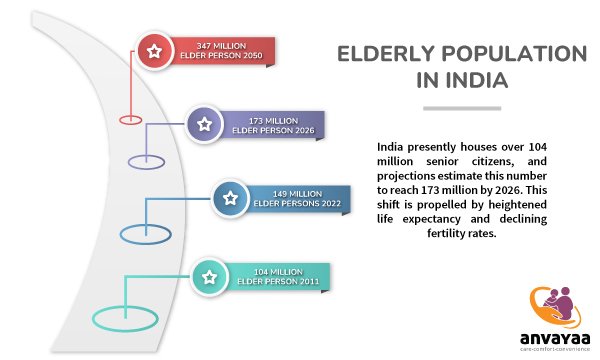
Government Initiatives:
Recognizing this evolving landscape, the Indian government has introduced initiatives like the National Programe for the Health Care of the Elderly (NPHCE) to address the unique healthcare needs of older citizens.
Rise of Professional Care Services:
While family support remains integral, there’s a noticeable surge in demand for professional elder care services in India. Home healthcare, assisted living, and senior care management are gaining prominence.
Family-Centric Approach:
In navigating elder care, India traditionally relies on a family-centric model. More than 75% of older individuals express a preference for cohabiting with their families, underscoring the cultural significance of intergenerational living.
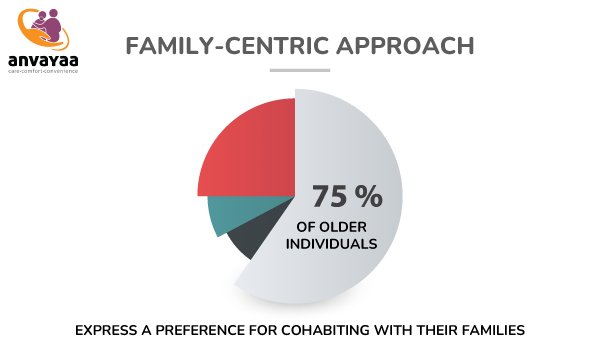
Cultural Sensitivity:
The role of cultural nuances in elder care cannot be overstated. Understanding and respecting the preferences and traditions of older individuals are essential components of holistic care.
Mental Health Emphasis:
The growing concern for mental health among older people, characterized by loneliness and isolation, highlights the imperative to integrate mental health support into elder care services.
Urbanization Hurdles:
The swift urbanization pace has given rise to nuclear families and increased migration for employment. This shift accentuates the need for formal elder care services, especially when families find themselves geographically separated.
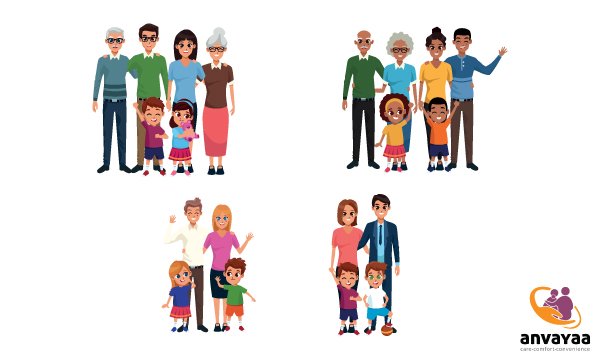
Technology’s Impact:
Technological advancements, such as telehealth, wearable devices, and smart home technologies, contribute significantly to enhancing the quality of life for the elderly.
Health Challenges:
The prevalence of age-related health issues, including diabetes, cardiovascular diseases, and arthritis, poses a considerable challenge. Access to quality healthcare is pivotal in effectively managing these conditions.
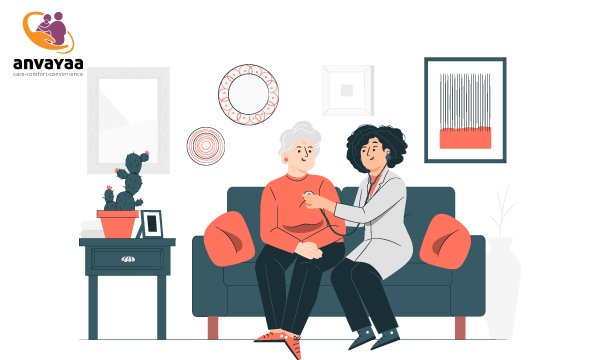
Economic Dynamics:
Elderly care isn’t merely a social responsibility; it’s a critical economic consideration. The shifting dependency ratio, with a growing proportion of elderly individuals, impacts pension systems and social security.
Financial Dependency Challenges:
A study reveals that 43% of elders are fully financially dependent on others, with an even higher percentage among female elders at 67%. Additionally, 18% live alone or with a spouse, and approximately 45% are unaware of available government resources, while one in two suffers from loneliness.
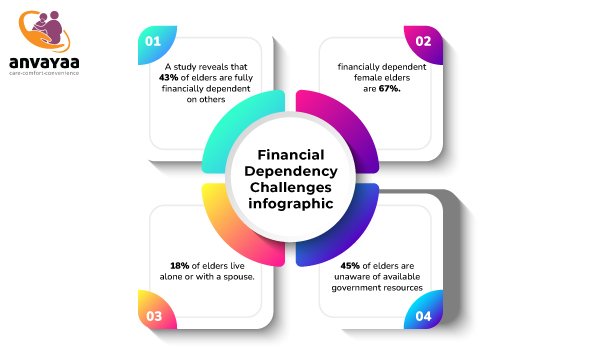
Social Determinants of Health:
Ensuring the well-being of older people involves meeting their social determinants of health. A UNFPA & HelpAge International report identifies key areas of interest:
- Income Security with access to job opportunities to supplement pensions.
- Health in old age, encompassing medical care, medicines, equipment, and education within financial constraints.
- Enabling and supportive environments that empower them in a safe, secure, and accessible community.
- Participation and contribution to communities, providing a sense of purpose and recognition.
In addition to these challenges, India grapples with inflation hitting a record 7.79% in April 2022. A Reuters report highlights that meager state pensions mean only a minority of retirees can afford proper healthcare, leaving nearly 15 million of those aged 60 and above, approximately 10% of the total, on the brink of homelessness.
As India’s silver economy spending is expected to soar from $100 billion to $1 trillion by 2030, it becomes imperative for governments, insurance and healthcare providers, and organizations to proactively prepare for this shift and take the lead in caring for the nation’s growing aging population.
In conclusion, addressing the complex landscape of elder care in India requires a nuanced and comprehensive approach. Balancing tradition with modern solutions, understanding the diverse needs of older individuals, and fostering collaborative efforts between families, formal care services, and innovative startups will shape the future of elder care in the country.
Be First to Comment